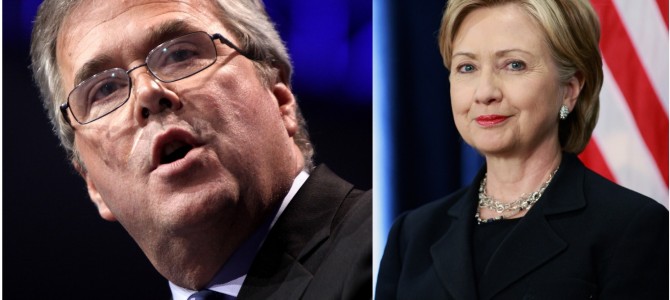
Augustus and Julius, Khan and Macedon, Roosevelts and Kennedys, Bushes and Clintons—what is it that makes rival family dynasties so compelling?
Across time, across cultures, across political systems, there is a common theme of dominant families rising to power for decades or centuries on end. Our democratic age is all-too familiar with the negative connotations of hereditary rule, yet historically this system possessed several distinct advantages, not the least of which was peaceful transition of power. Monarchical succession long held sway as the rational choice for a well-ordered society, but still required careful cultivation. In a recent New York Times op-ed, David Brooks suggests there are five ways in which these “powerhouse families nurture achievement.”
Five Ways Dynasties Nurture Achievement
First is identity formation. Long before reorganizing the Roman Republic as an empire, Augustus was practicing leadership and gaining administrative experience. He was elected to the priesthood, oversaw Olympic games in the temple, and volunteered with the military. Surviving a shipwreck and crossing enemy lines developed the perseverance Augustus would need in later struggles with Marc Antony and the Roman Senate. But it was the ultimate act of identity formation—adoption by Julius Caesar—that paved the way for their descendants to rule over the next 95 years.
Second is practical knowledge. It’s not a coincidence that Joe Kennedy’s four sons would go on to become a Navy pilot war hero (Joe Jr), a U.S. president (JFK), an assassinated presidential candidate (RFK), and a long-time U.S. senator (Ted). The boys watched their father serve as Securities and Exchange Commission chairman and wartime ambassador to the United Kingdom, and watched their grandfather get elected to eight consecutive terms in the Massachusetts House and Senate. The Kennedy boys would have learned the practical knowledge required for statesmanship by osmosis, even if political ambitions of their own had never materialized.
Third is a certain level of skills, which is also primarily cultivated by the central social institution of family. It should come as no surprise that family businesses make up two-thirds of all companies around the world (and five out of six in China). Historically, we’ve developed our strongest skills from these strongest ties inside a family, so it makes sense to follow in their footsteps—the apprenticeship model. Aristotle observed that “Man is by nature a social animal,” and political life is no exception. As Brooks put it: “In New York there are Cuomos. In California, Browns. Out West the joke is that voters should just vote for the closest Udall.”
Fourth is audacity. We think it’s cute when our kids want to grow up and be president, but when a toddler Chelsea Clinton or George P. Bush (yes, there’s another one) says something like that, powerful forces are set in motion. These youngsters are next in line to inherit loyal donor networks, massive expectations, and the brand recognition (even if mostly infamy) that takes dark-horse candidates decades to build on their own. Sure, the occasional hiccup in fate manifests as a lanky, articulate, Illinois boy: a Lincoln to upset a Breckinridge, an Obama to upset a Clinton—but overall the trend is for dynastic families to internalize a hubristic audacity as the new normal.
Fifth is the time horizon. Everyone is born into a world already at war: liberal versus conservative, eldest versus youngest, Yankees versus Red Sox, etc. But some of us are born into hegemonic legacies that are already carefully guarded. Genghis Khan’s conquest of the known world differed from Alexander the Great’s 1,500 years earlier because his intentions for succession were clear. Alexander died young and vaguely bequeathed his Macedonian kingdom “to the strongest,” so they were quickly overrun by Rome. But Khan lived into old age and strategically divided the Mongol Empire between three sons, ensuring another 150 years of family control.
Today, with the announcement of John Ellis Bush’s presidential candidacy, we are not entering a usual campaign season. We are stepping into a family tradition of power struggle as old as Cain and Abel. We are watching a chess game unfold in which all the other pieces of the board will scramble around a powerful queen on one side (Clinton) and king on the other (Bush).
Undoubtedly, she will campaign as Hillary and he as Jeb. They will strive to appear as common as you or I, meanwhile distancing themselves from Bill and George. But their foundation is much stronger than a “House of Cards.” Barring another hiccup in fate, the money and “public opinion” will come around like they always do. The stars will once again align for these legacies with identity, knowledge, skills, audacity, and time on their side.
In eight years, we’ll be scratching our heads at the prospect of another Bush or Clinton term, but the ugly truth of human psychology on Election Day is: Better the devil we know than the devil we don’t.









